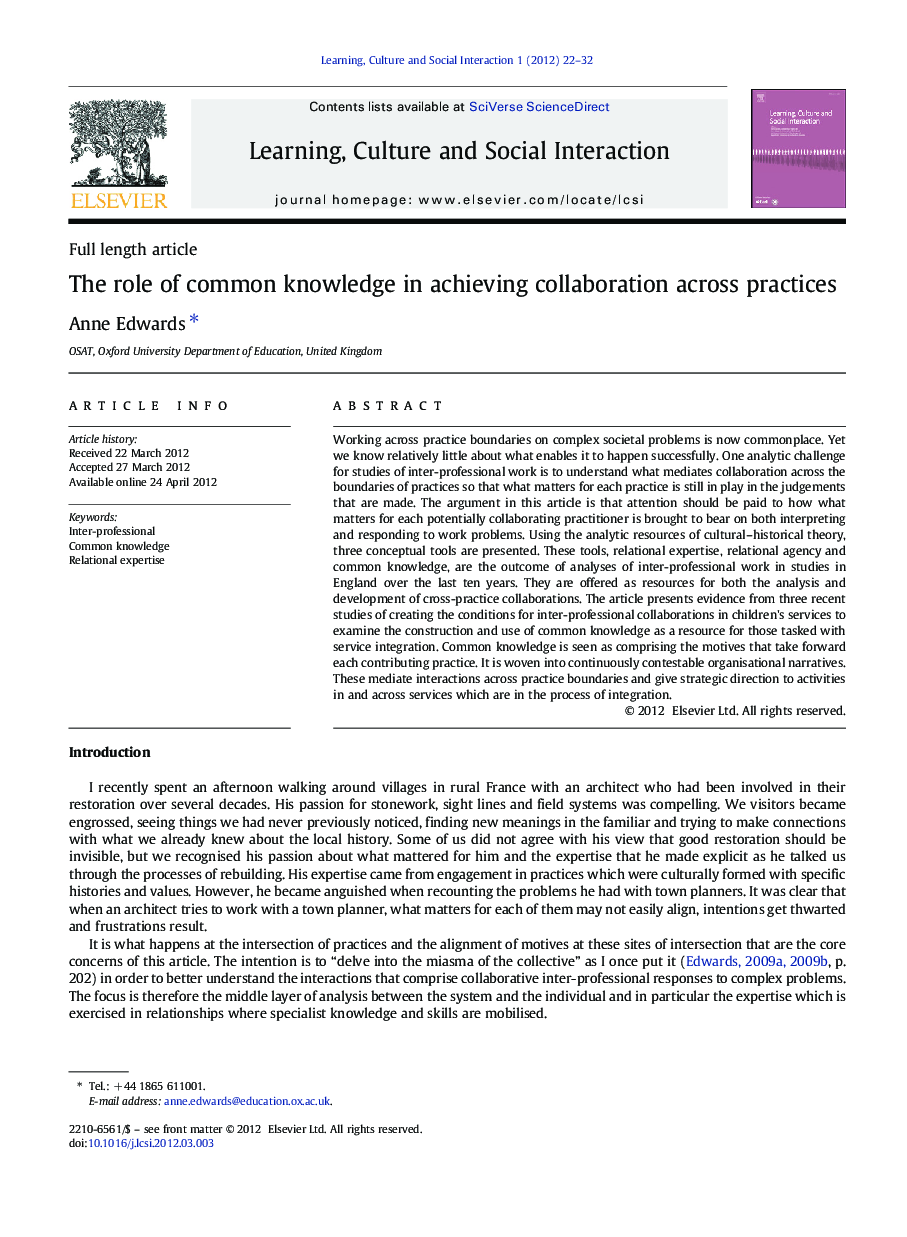| Article ID | Journal | Published Year | Pages | File Type |
|---|---|---|---|---|
| 364453 | Learning, Culture and Social Interaction | 2012 | 11 Pages |
Working across practice boundaries on complex societal problems is now commonplace. Yet we know relatively little about what enables it to happen successfully. One analytic challenge for studies of inter-professional work is to understand what mediates collaboration across the boundaries of practices so that what matters for each practice is still in play in the judgements that are made. The argument in this article is that attention should be paid to how what matters for each potentially collaborating practitioner is brought to bear on both interpreting and responding to work problems. Using the analytic resources of cultural–historical theory, three conceptual tools are presented. These tools, relational expertise, relational agency and common knowledge, are the outcome of analyses of inter-professional work in studies in England over the last ten years. They are offered as resources for both the analysis and development of cross-practice collaborations. The article presents evidence from three recent studies of creating the conditions for inter-professional collaborations in children's services to examine the construction and use of common knowledge as a resource for those tasked with service integration. Common knowledge is seen as comprising the motives that take forward each contributing practice. It is woven into continuously contestable organisational narratives. These mediate interactions across practice boundaries and give strategic direction to activities in and across services which are in the process of integration.
